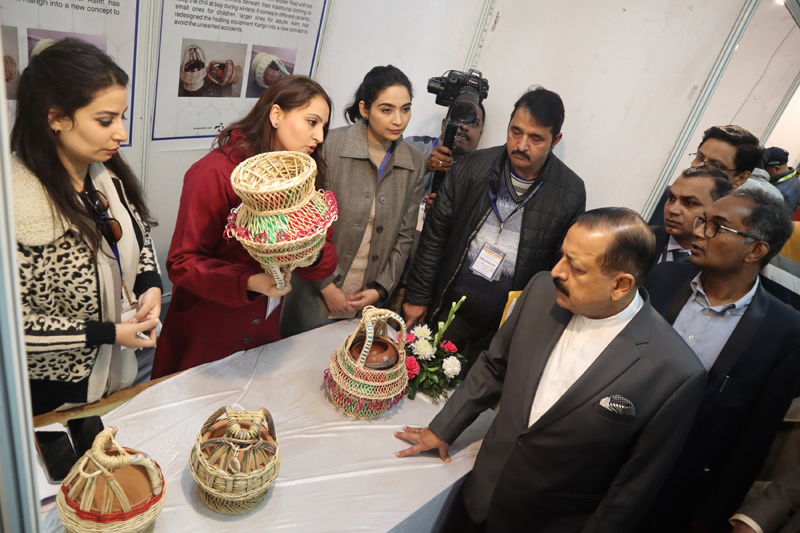
Excelsior Correspondent
SRINAGAR, Nov 9: Maintaining that UT of Jammu & Kashmir and other Himalayan States have huge unexplored potential of Agritech StartUps, Union Minister in PMO with Independent Charge of Science & Technology, Dr Jitendra Singh today said these States will be major contributors to India’s future economy.
Inaugurating the Start-Up summit here today, the Union Minister said J&K has huge unexplored potential of Agri-tech StartUps as the geographical and climatic conditions here favour the cultivation of medicinal and aromatic plants.
Dr Jitendra Singh said that these States will play important role during next 25 years in Indian economy as they have unexplored potential of Biodiversity, Himalayas and Aroma.
In the next 25 years of Amrti-Kal, he said, Jammu & Kashmir and several hilly territories as well as the Himalayan States are going to make a significant value edition to build India’s future economy because these are the territories whose resources have remain under-utilised in the past. With Prime Minister Narendra Modi giving a focused attention to these areas, they are going to play a pivotal role in placing India on the world pedestal by 2047, he said.
He regretted that the StartUps could not get pace at such a level in J&K as in other parts of the country as the people of the UT are not yet coming out of Government job mindset forgetting that the StartUps are more lucrative than the Government job.
Dr Jitendra Singh said the Government job mind-set is proving an impediment to StartUp culture, mainly in North India. He pointed out that the ‘Purple Revolution’ originating from Jammu & Kashmir offers attractive StartUp avenues and those who have entered the lavender sector are making a fortune out of it.
Dr Jitendra Singh said that to boost the lavender cultivation in Gulmarg his Ministry has tied up with Maharashtra and Gujarat States.
He said it is important to take note of some of the exemplary instances of many young entrepreneurs who are seen quitting their lucrative jobs in the MNCs to establish their own Start-Ups, as these young entrepreneurs are now beginning to realise the possibility of greater fortunes in this.
Dr Jitendra Singh pointed out that as Union Minister for DoNER, he had approved three Bamboo Clusters in Jammu, Katra and Samba areas in 2020 for making of Bamboo basketry, Agarbatti and Bamboo Charcoal. He said the Bamboo products are in great demand both in India and abroad and through Start-Ups, the youth can explore huge entrepreneurial opportunities in this sector.
Dr Jitendra Singh gave full credit to the futuristic vision of Prime Minister Narendra Modi who had given a call for “Start-Up India Stand Up India” from the ramparts of Red Fort in his Independence Day address of 2015 that initiated a mass interest, as a result of which the number of Start-Ups in India has increased from mere 350 in 2014 to over 80,000 in 2022 with more than 100 unicorns.
He said to boost the Bamboo cultivation in the country, the Modi Government amended over 100-year-old Forest law.
Dr Jitendra Singh informed that the Biotech Kisan Hub has rejuvenated 40 orchards till date under rejuvenation of apple orchards, where a very innovative methodology has been used to transform the old, senile and the young and non-productive orchards into more productive orchards. He said, in J&K too, the new high-density plantation system of apple is taken up by farmers and is being promoted by the Biotech Kisan hub vigorously. The Minister promised full help by DBT and CSIR for setting up of Agritech Start-ups.
The Minister pointed out that a new wave of Agri-tech Start-Ups has emerged in the country in the last few years and these Start-Ups are solving problems related to supply chain management, cooling and refrigeration, seed management and distribution, besides helping farmers to access a wider range of markets. He said, ‘Kisan Drones’ could be adopted in a big way for promoting crop assessment, digitisation of land records, spraying of insecticides, and nutrients and pointed out that countries like Israel, China and the US have transformed several agriculture practices in their country with the use of technology.

